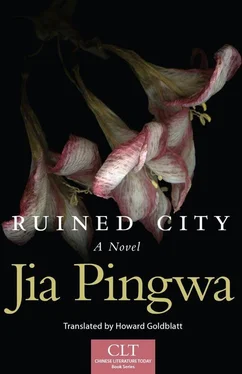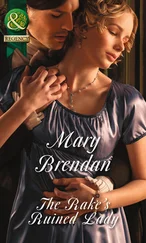“It didn’t interest me anyway,” Zhuang said. “Here’s my story. Earlier, I went to use the toilet at the nunnery. The holes were all taken, and more people were waiting in line. One of the squatters smiled at me, and I tried to figure out who he was. A fan of literature? A member of the audience at one of my talks? Or someone who had seen my picture in my books? I walked over to him, but he ignored me. Then I realized that he was straining so much, his face had contorted into a smile.”
They laughed.
“You’re mocking us,” Wan’er said. “You made us laugh so we’d all look like that guy. But you’ve demeaned yourself, a famous writer telling that kind of joke.”
“Nothing wrong with demeaning oneself. In fact, the best way not to embarrass people is to demean yourself and get a good laugh over it. In the past we said ‘say cheese’ to get people to smile when taking their photos. In the future, why not say ‘strain’? How do you like that little item? It’s copyrighted, so you can’t use it.”
“No deal,” Meng said. “Whatever is said here today is open to all. Salon means to share ideas, give each other inspiration, and help with creative writing.”
“Now I know how to be a writer,” Wan’er said. “You use my ideas and I use yours. Like fish in a tank, I eat what you spit out and you eat what I spit out, which turns the water fetid and the fish stinky.”
They fell silent at this comment before Meng laughed.
“Wan’er is amazing,” he said, “stripping away all our writers’ skins. I recommend that we seek some sort of breakthrough. I wanted to invite Huiming to give a talk on Zen, but she’s busy these days, so we’ll have to wait. If you’re interested, I could share some knowledge on qigong. In Master Shao’s Magic Numbers —”
“We’ll pass on your ‘numerical divination,’” Zhuang interrupted. “Wan’er isn’t a writer or an editor, but she’s more intuitive than the rest of us. As an outsider, she can see us more clearly than we see ourselves. Let’s listen to her.”
“I have nothing to say.”
“Of course you do,” Meng said. “Go on, so we can go get something to eat.”
“You want to hear something clean or off-color?”
“You know both?” Li asked. “Then off-color, of course.”
She looked around and broke up laughing. “Look how you all perked up when I mentioned something off-color. Sorry, but I don’t know anything like that. Being from a backwater, I’m still learning about big-city life, but I did hear something the other day. Why don’t I sing it for you?”
“Great!” Zhuang said. So she began:
Dust swirled on Qin’s eight hundred li of land .
Thirty million people roared in singing the tunes of Qin .
Filling a bowl with long noodles pleases everyone .
Not adding spices and chilies makes them grumble .
They clapped when she was finished.
“She’s a real Shaanxi resident, a true portrait of Shaanxi people,” they said. “Where did you hear that, Wan’er?”
Raising his cup, Zhuang said, “The most engaging person today is not us literary types, but her. She’s so much better than the rest of us. The lyrics are terrific, and so is her singing. I propose that we reward her with three cups. If anyone else wants to drink, we can take the bottle along when I treat you all to some spicy noodles.”
They stood up to urge her to drink. She could not stop smiling; her face brimmed with delight. After downing the first cup, she said she would stop there and asked Zhuang to drink the second one for her, with an offer to toast him with the third. Zhuang clinked the bottle with her cup. She held her head high when she’d finished, her face like a peach blossom.
. . .
After visiting several markets and stuffing the refrigerator, Niu Yueqing counted the days and decided not to buy seafood. Instead, she decided to purchase a set of red clothes for her husband. She went to a department store on South Avenue and, with a woman’s attention to detail, pored over the merchandise without finding anything to her liking. She then headed to the City God Temple Market. Built during the Song dynasty, the temple’s gate was still intact, but the grounds had been renovated and turned into a narrow street. Parallel lanes spoked out on either side, so that all the shops faced each other, a perfect image of a willow leaf that has been dried until only the ribs remain. Each was a specialty shop, selling miscellaneous items like needles and thread, buttons and ribbons, shoes for bound feet, felt hats, mahjong tiles, spittoons, and chamber pots. Six more lanes had opened up in recent years for shops selling objects related to traditional customs and lifestyles: candles and spirit money for the dead on Tomb-Sweeping Day; long red ropes for hanging apples for horseplay at weddings; swaddles for newborns; funeral kerchiefs for mourning sons and grandsons; sets of red clothes and belts for middle-aged men’s birthdays, to drive away the bad and summon the good; bamboo steamers for date cakes at temple celebrations in Dongcheng District on the eighth day of the fourth month; wooden molds to create patterns for fried cakes; small galoshes for little old ladies; black satin hair nets with glass baubles; and large tin kettles for brewing thick liquor over charcoal fires in the last month of the year in Xicheng District.
Niu Yueqing went to the shop selling red clothes, where she asked if any of them were available in one hundred percent cotton and whether anything had a Buddhist symbol printed on the back. She complained about one for its crude needlework and another for not being well stitched. Lucky for her, the salesclerk was patient and good-natured. Looking at the clothes strewn across the counter, Niu Yueqing said, “I’m picking out a dragon robe for an emperor’s enthroning ceremony,” and laughed at her self-mockery.
Emerging from the lane onto the street, she was surprised to see Gong Jingyuan, who now had a significant paunch.
“You’re still looking young.” Gong smiled broadly. “And you still have the figure of a young girl. I’m so envious of Zhidie. You must get old and look ugly quickly to make me feel better about myself.” Slapping his protruding belly, he said he was no longer presentable. Niu Yueqing patted his belly and said it added to his charm at that age, which so elated him that he thanked her for perking him up. As they jested, Gong noticed the red clothes in her hands and wondered why she would want to wear something that flashy.
“I’m glad I ran into you, it saves me a trip,” she said. “Wednesday is your friend’s birthday, and I want to invite you to be part of the celebration.”
“That’s wonderful! I’ll bring a set of mahjong tiles, and we’ll play nonstop for a day. Did you invite that Mr. Ruan? Tell him to bring some members of his troupe, will you? We’ll make it a big celebration. Need me to bring a chef? I can get you one from any hotel in town.”
“No need to bring anyone or anything; just bring your mouth. I will be unhappy if you follow the old practices. But do bring a set of tiles if you want to play mahjong, since we don’t have a good set at home.”
“Guess what I’m here to do?” Gong asked, then answered his own question: “Buy a good set of mahjong tiles.”
They went their separate ways after some more banter. It was nearly dark when Niu Yueqing got home, where Liu Yue had already put food on the table. Niu Yueqing’s cousin’s husband was sitting at the table, and next to the sofa were a bag of potatoes, two pumpkins, and some newly picked daylilies wrapped in a bandana. He hadn’t eaten yet, preferring to wait for Niu Yueqing and Zhuang Zhidie. After a brief greeting, Niu Yueqing said, “Zhidie has been out and about for a few days. Since he’s not home, it’s likely that he’s already eaten elsewhere. So we won’t wait for him.”
Читать дальше


![Matthew Vincent - [you] Ruined It for Everyone!](/books/216429/matthew-vincent-you-ruined-it-for-everyone-thumb.webp)









